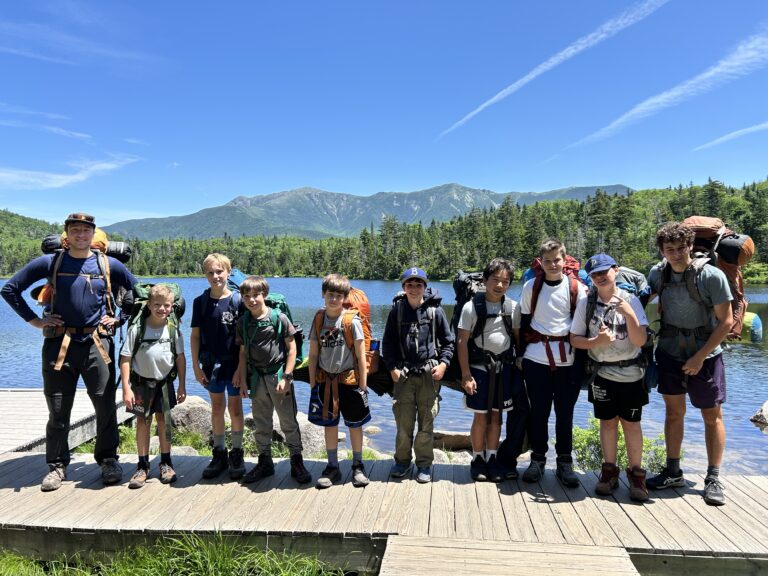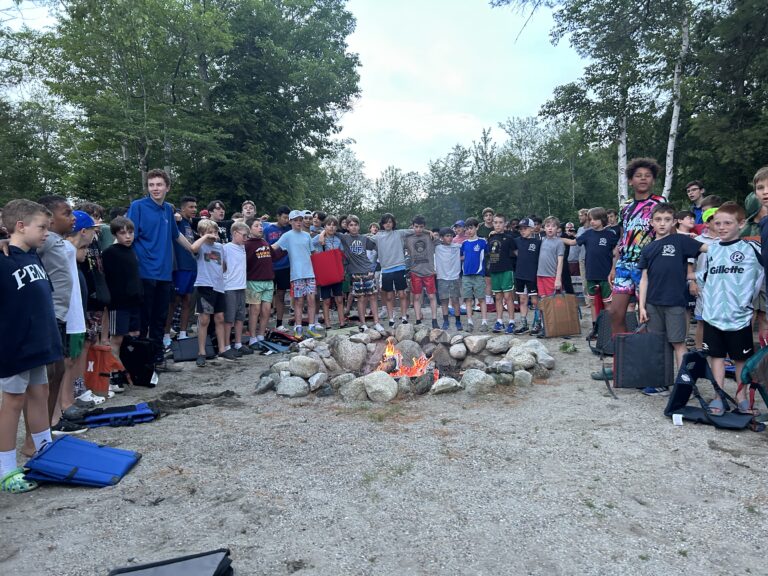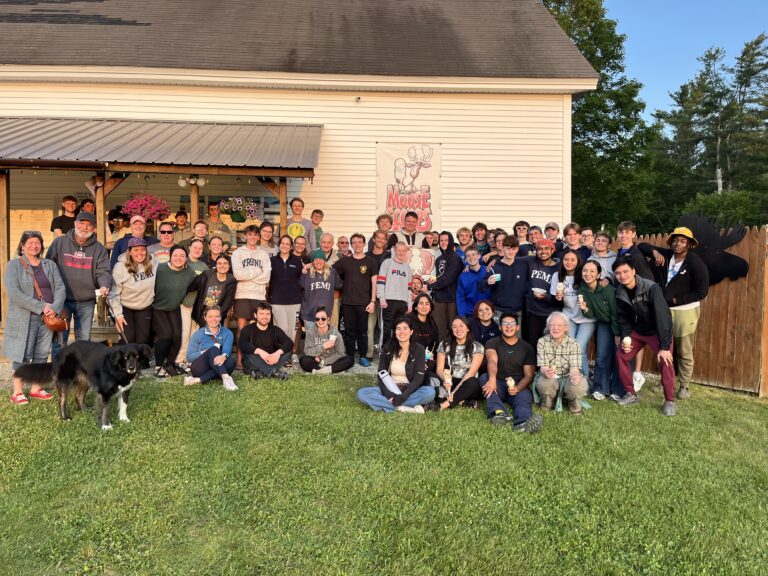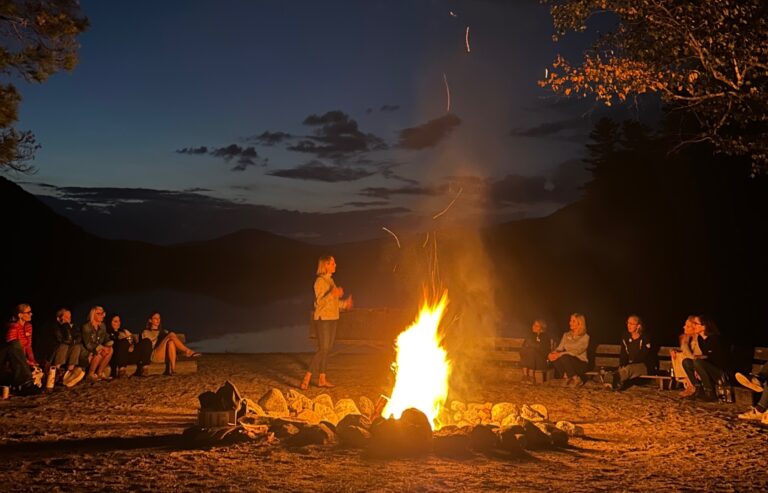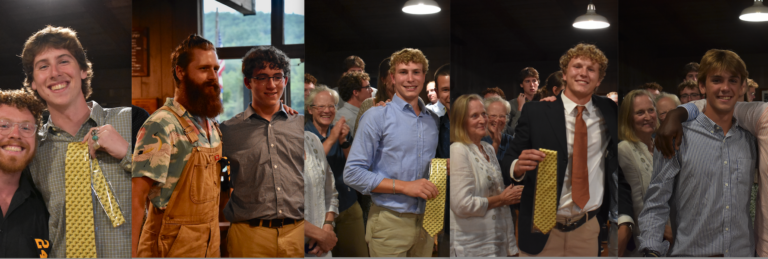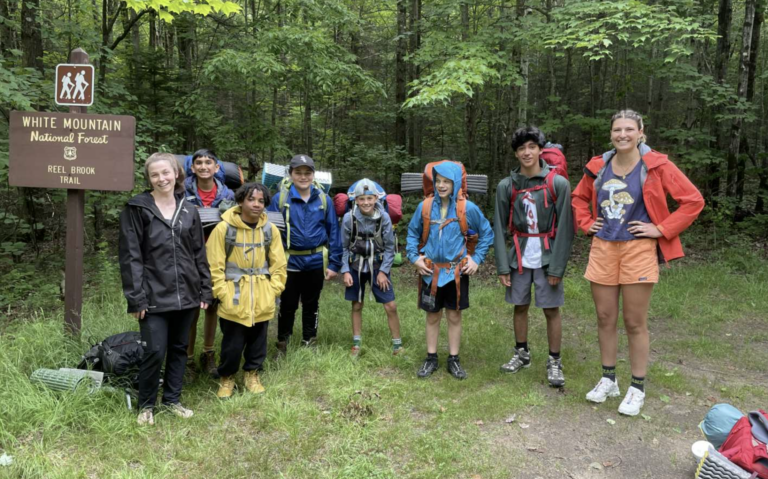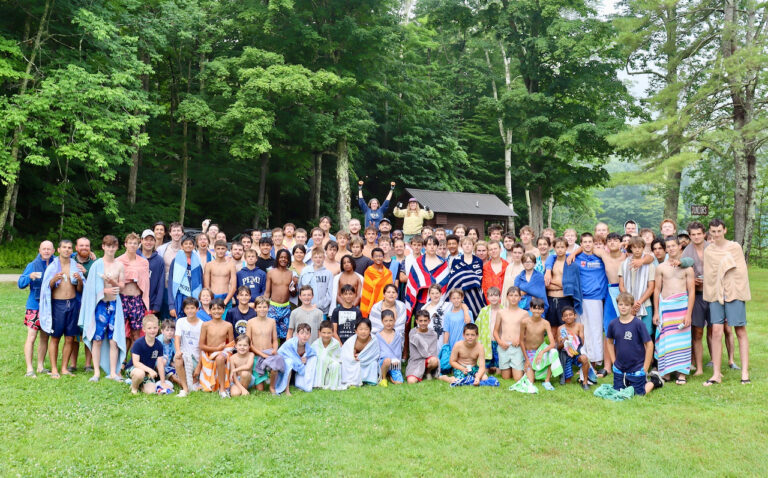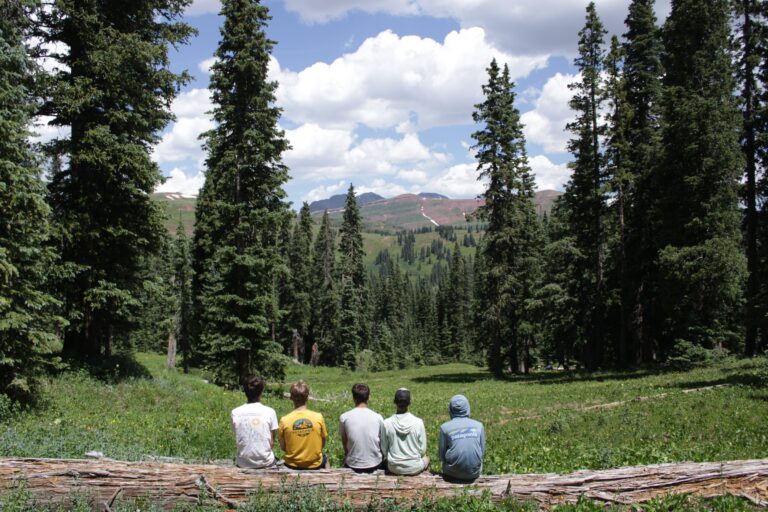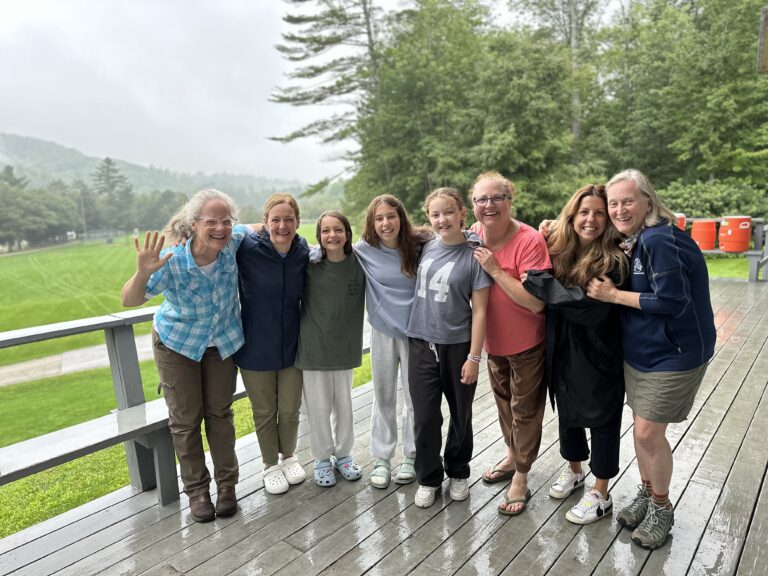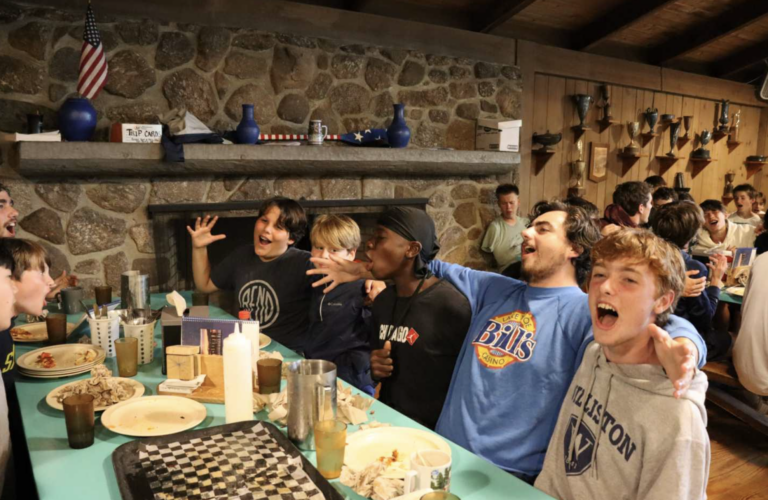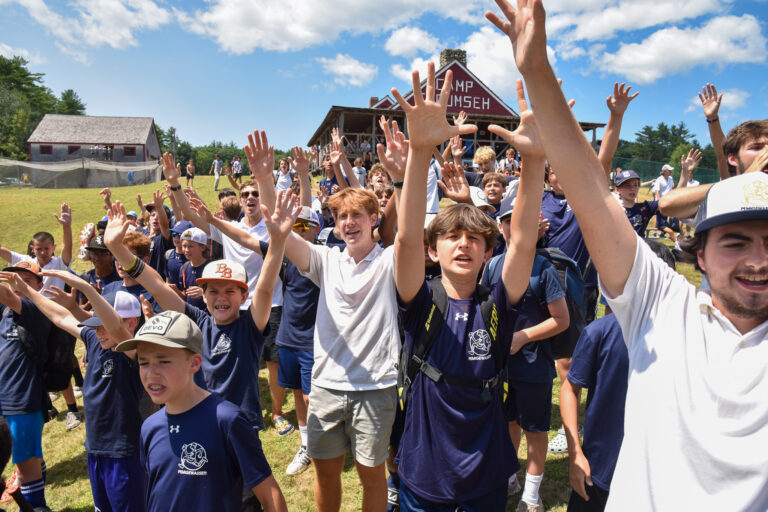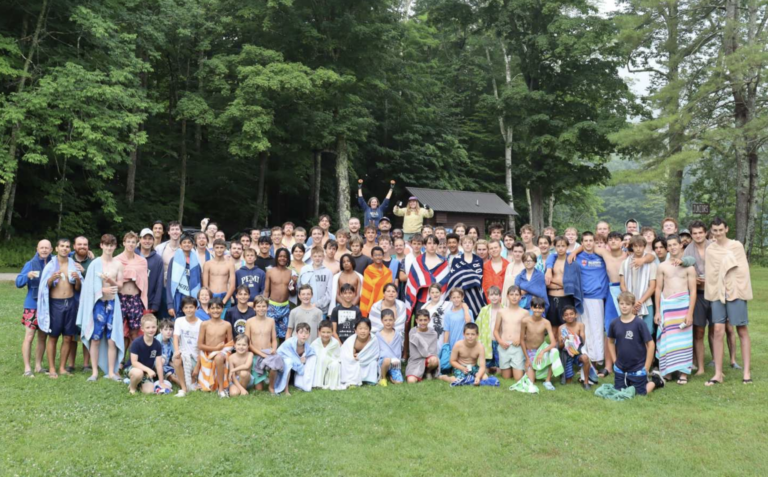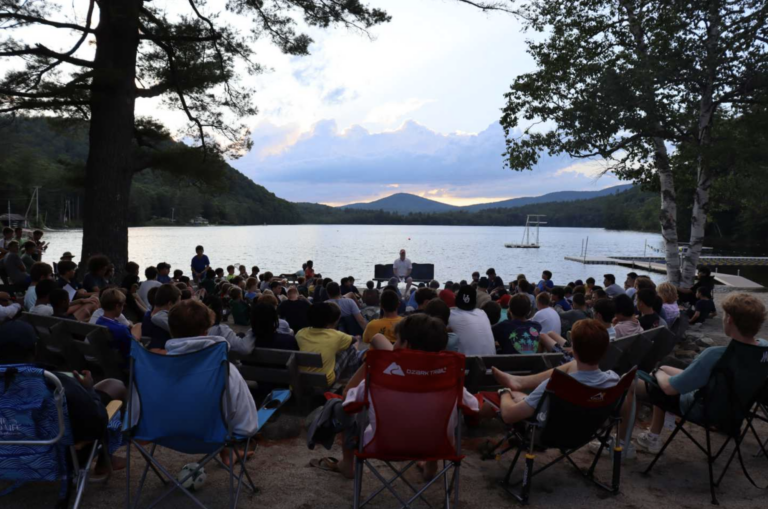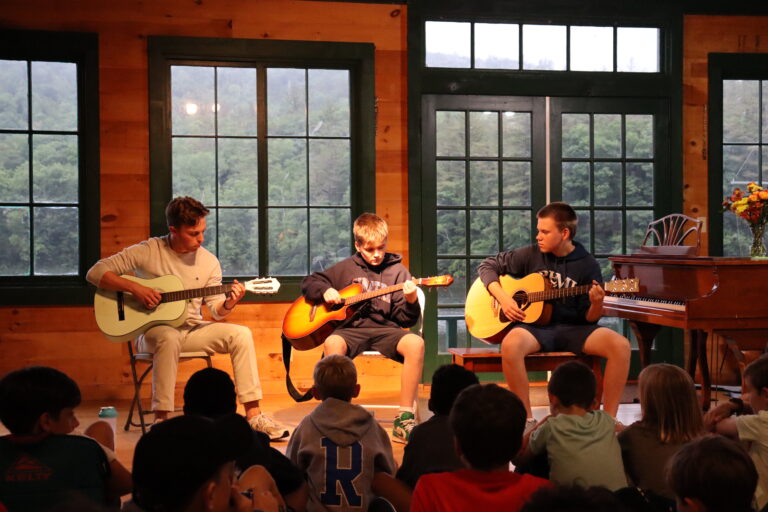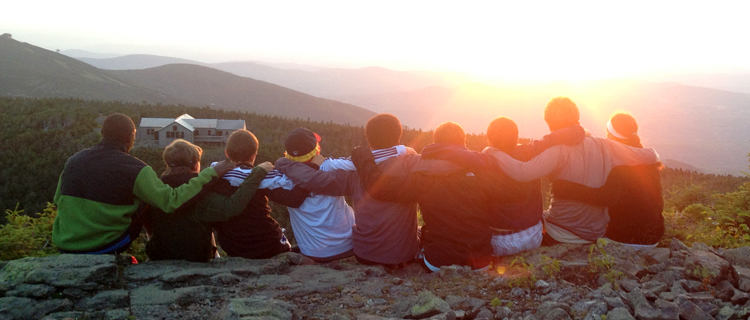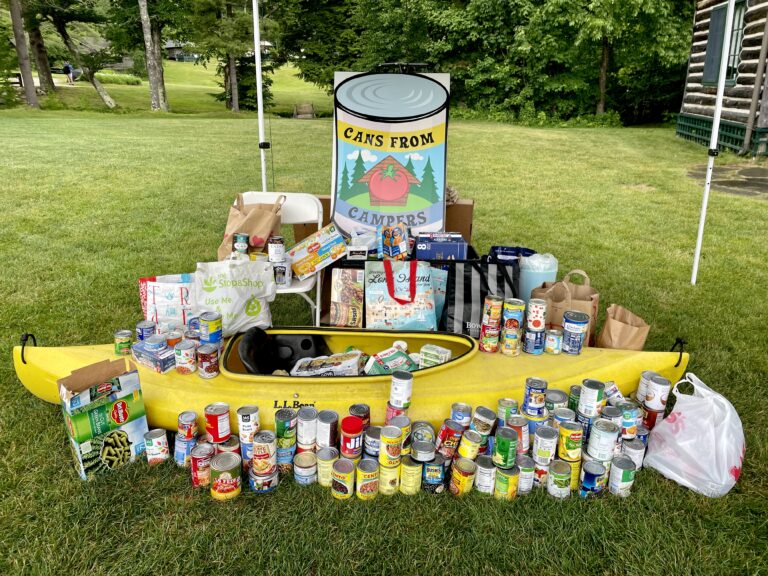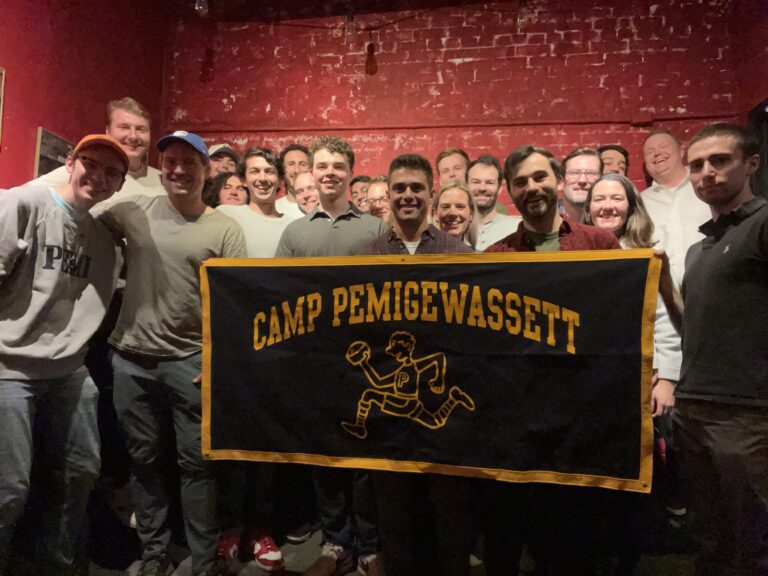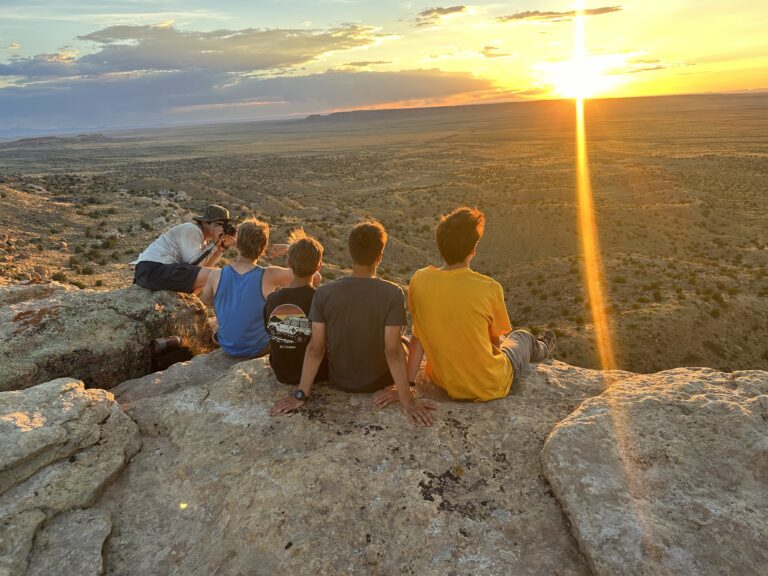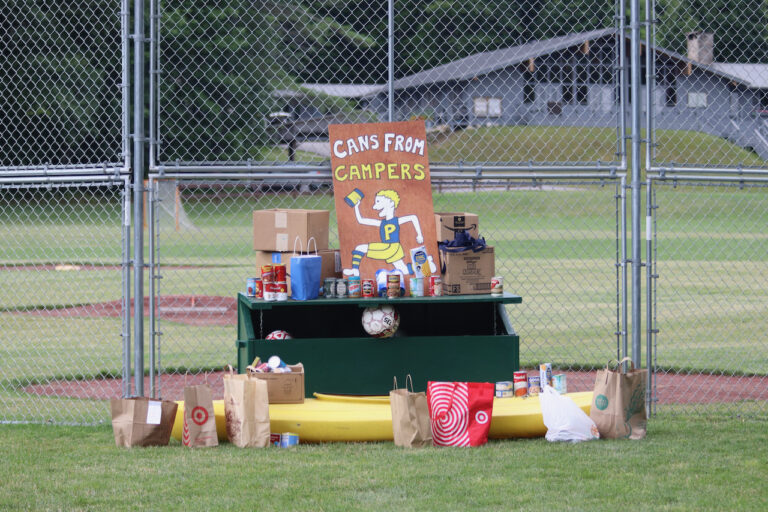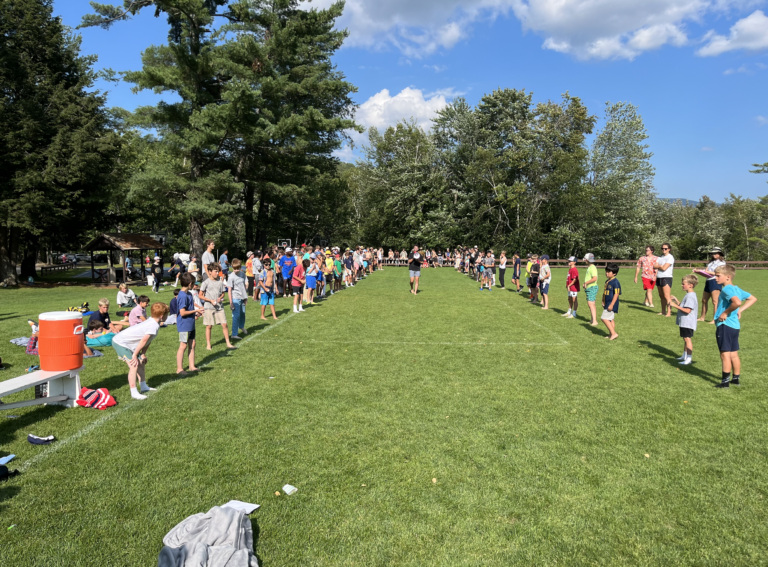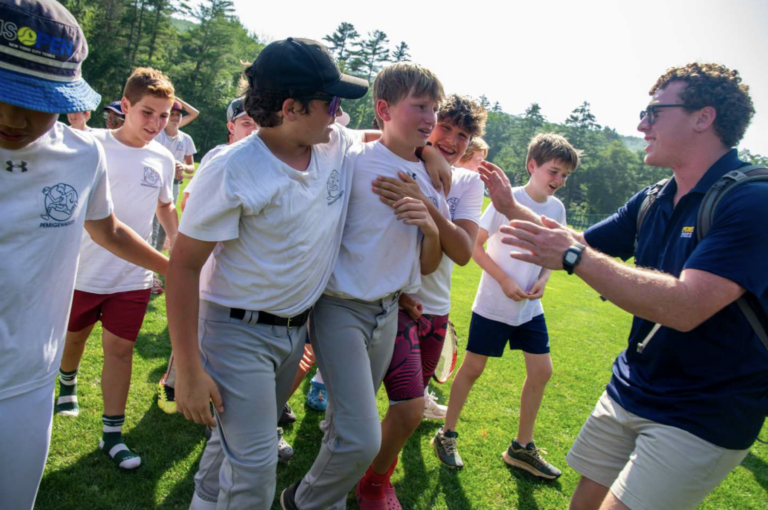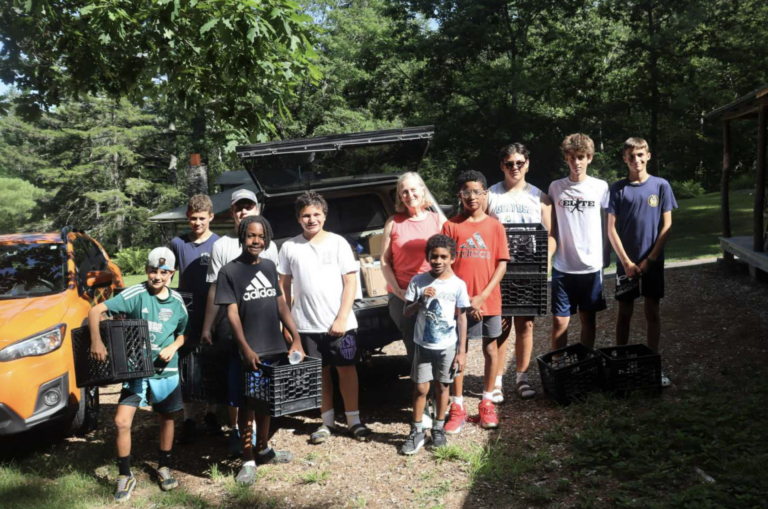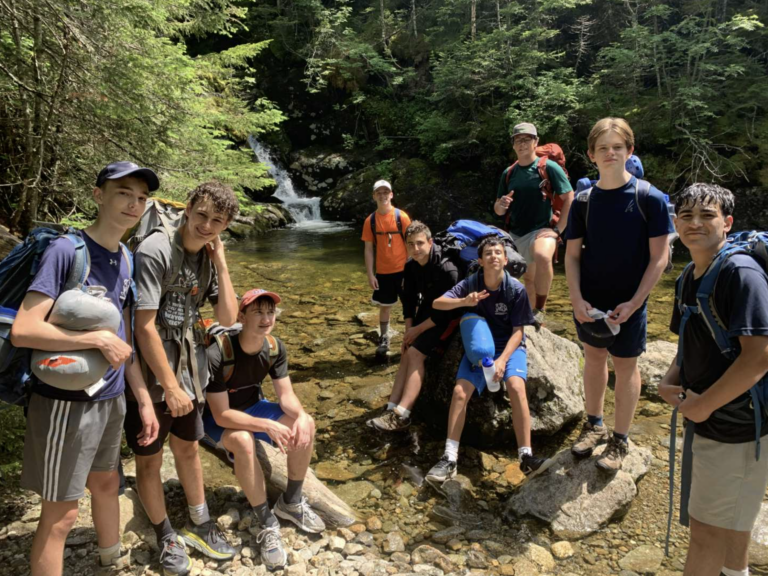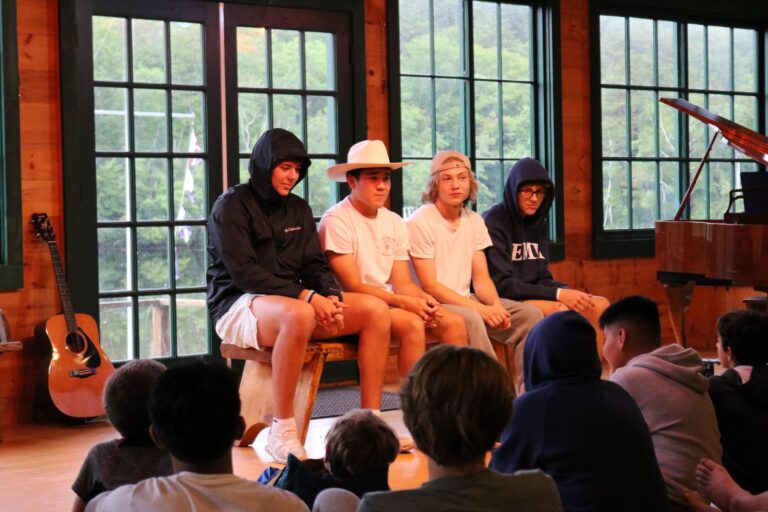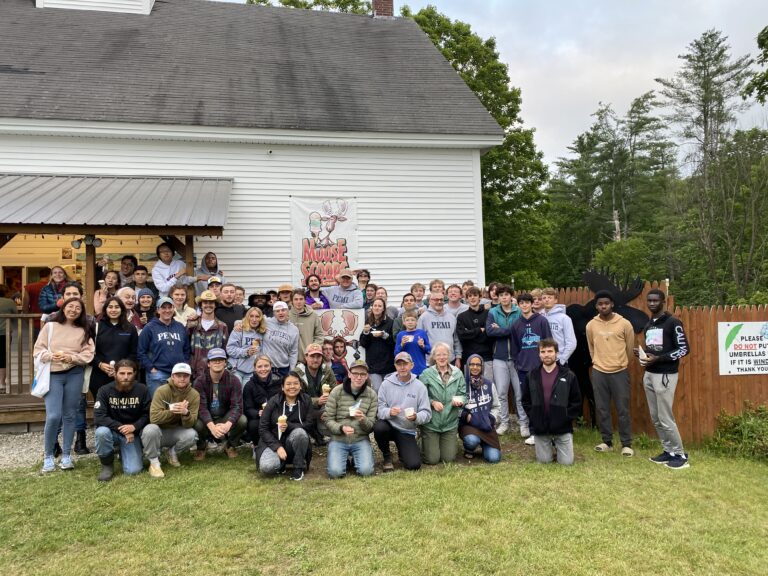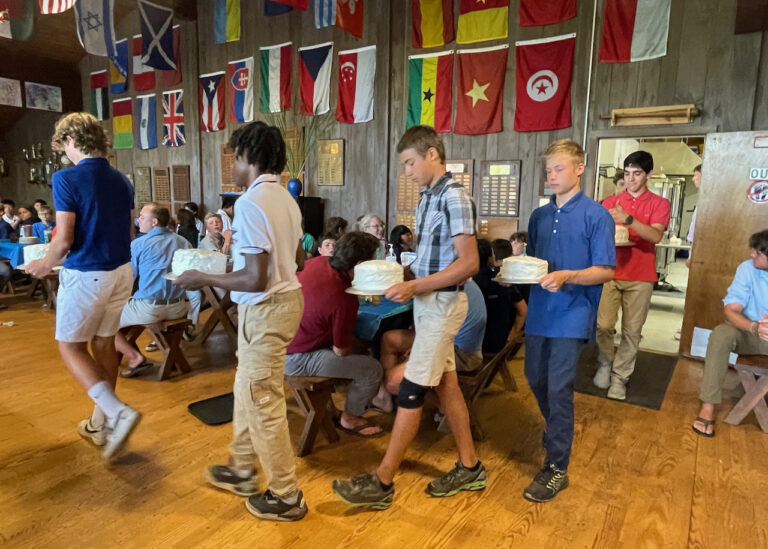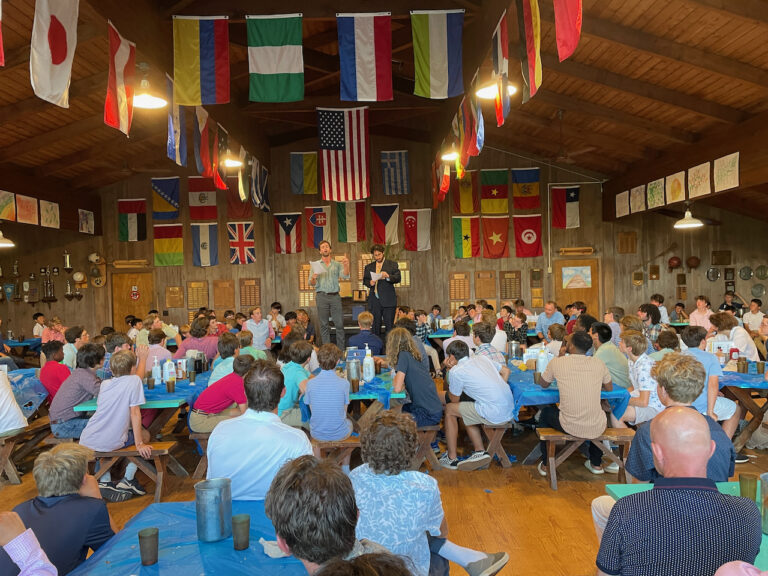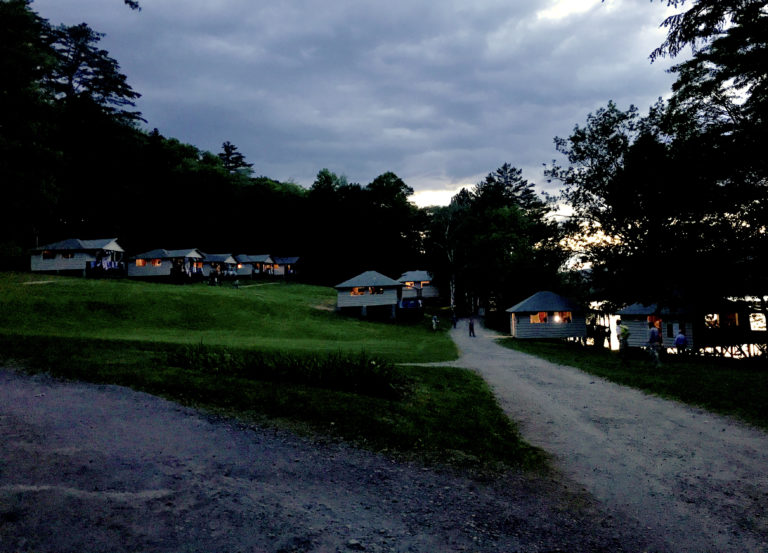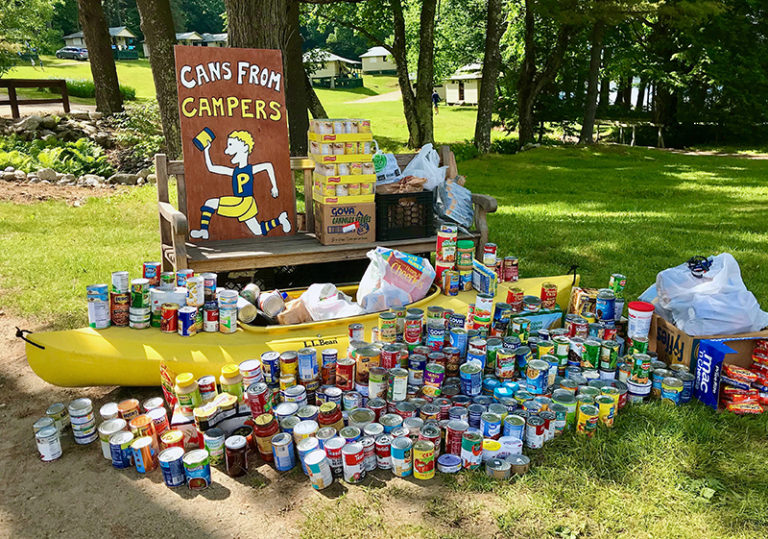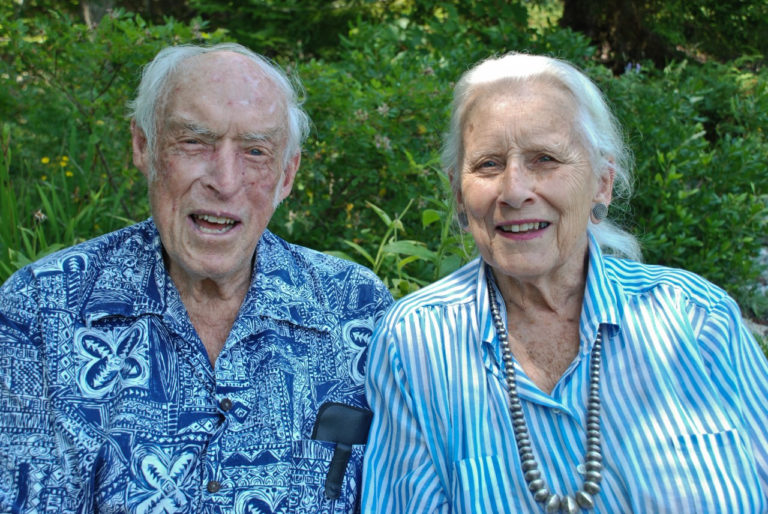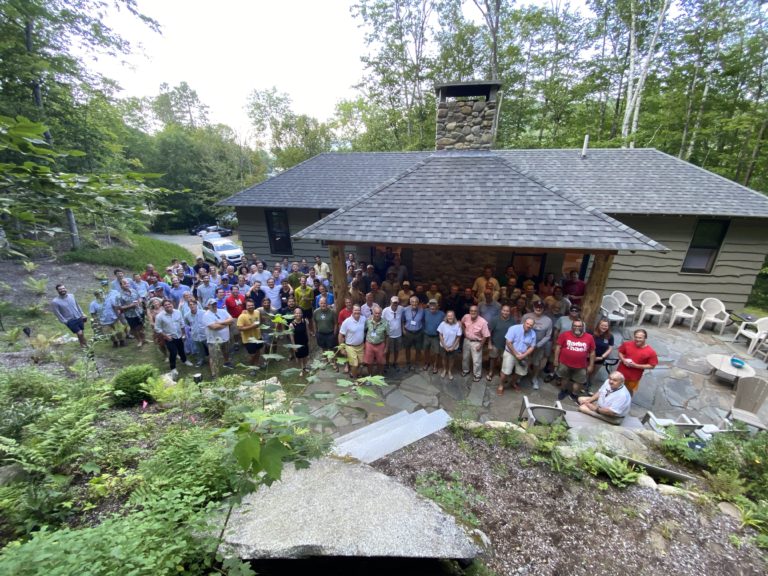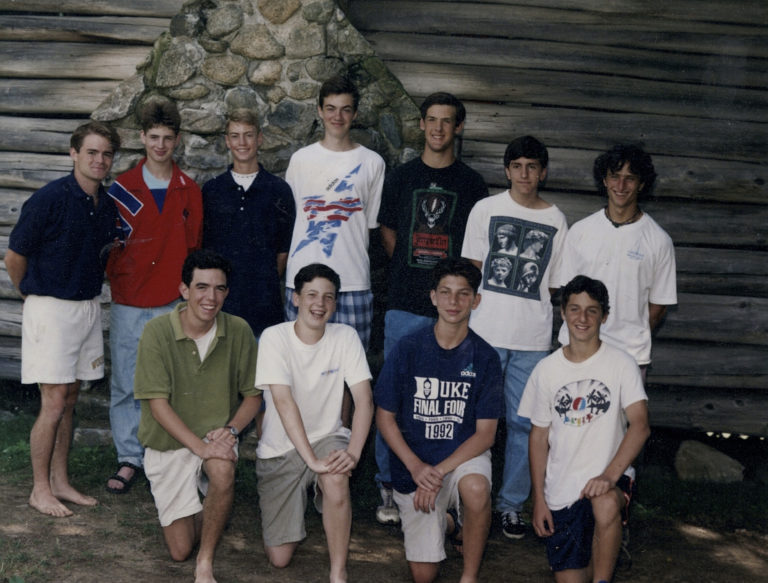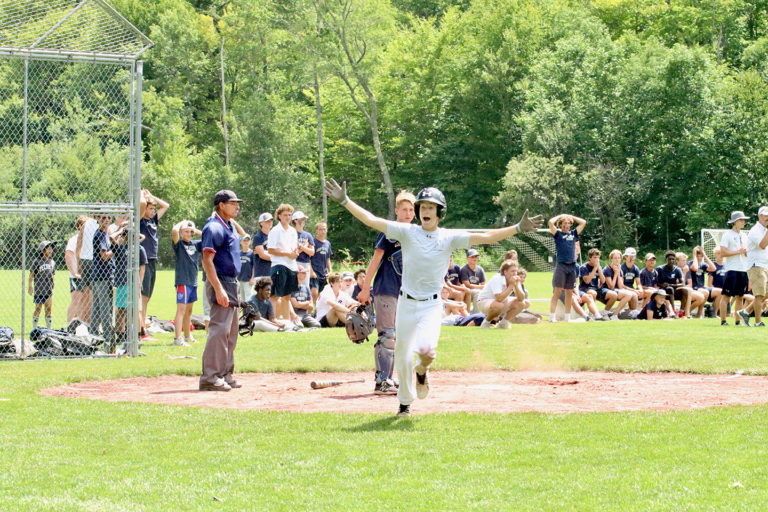- Camp Pemigewassett
- Daily Life at Pemi
- Education at Pemi
- Newsletters 2019
- Pemi History
- Resources for Parents
- Staff Stories
- Summer 2019
#5: Utopia Reconsidered
2019 Pemi Newsletter #5
There we sport on land and water,
Far from Eve’s disturbing daughter
(Though perhaps we hadn’t oughter.)
– From “Pemi,” by Dudley B. Reed
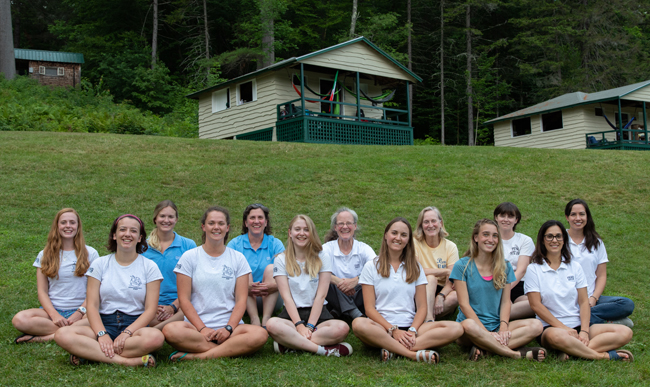
Women have been central to Camp Pemigewassett from the beginning, but their roles have happily evolved since our founding in 1908. Truth to tell, they were unquestionably most important to Pemi in the early days as nothing more or less than mothers to our campers and staff—positions that obviously loomed large in every individual male life but that we’d never suggest afforded women much honor or prestige at camp itself. Founders Gar and Win Fauver and Dudley Reed were all married when they launched Pemigewassett that first summer and, in fact, Doc Reed’s wife Clara had been persuaded to part with her wedding silver to come up with the purchase price of our first pair of draught horses—far more crucial to the fledgling operation than any sterling flatware or tea service. The hard facts, though, were that the wives of the first directors and of the early “masters” of music and nature instruction spent their days in almost complete isolation from the campers and counselors, dining in their own facility on the Hilltop above camp and cordially excluded from all public occasions save for a Sunday “church service” (with hymns and all—a feature of our mildly sectarian early days) and the frequent performances of the famed Silver Cornet Band. Everything else—Birthday and Final Banquets, Bean Soup, campfires, and so forth—was designated “boys only.” The early thinking was evidently that if camping in the Army was all-male and yielded disciplined, physically-hardened, and tightly-bonded soldiers, then the formula “weren’t broke” for summer camping either.
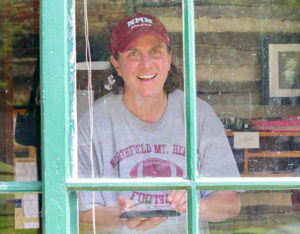
Although the skewed gender situation was “industry standard” for boys’ camps at the time, the second generation of Pemi directors’ wives arguably picked up the torch that had been consequentially lit by Rosie the Riveter in the man-depleted economy of WW II America. Betsy Reed, wife of Dudley’s son Tom Reed, Sr., teamed up with Scott Withrow in 1951 and established the Pemi Gilbert and Sullivan tradition, herself starring as Josephine Corcoran in the inaugural HMS Pinafore. Bertha Fauver, who had met Gar’s son Al in the White Mountains while she was an undergraduate at Smith College, frequently joined her husband in dispatching and picking up hiking trips and, in addition, played a central role in seasonal logistics and supply. At one point, there was some discussion of Betsy and Bertha establishing a sister camp to Pemigewassett, but that never came to pass, and the mission of Pemi remained resolutely male—no girls as campers, no young women on the teaching staff, and (hard as it may be to believe now) no mixed dining. When the current mess hall was built in the spring of 1966, what we now call “the small dining room” was formally designated as “the Ladies’ Dining Room.” Wives of directors and program heads had moved off the Hill to take their meals within mere yards of the boys, but a stout wall remained in between.
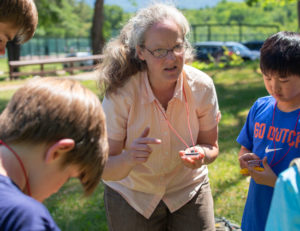
Enter the late sixties and early seventies, when so many things began to change so radically in the United States and across the wider globe. Perhaps the first betokenings we saw at Pemi involved sideburns and shaggy locks, the occasional pair of round, blue-lensed John Lennon shades, bell-bottoms at Sunday meeting, and Beatles or Jefferson Airplane covers at campfires. Many of the old restrictions fell in this new age of liberalism and enlightenment, as female office staff and nurses alike attended and contributed to Bean Soup, vaudevilles, and campfires. It wasn’t until the 1980’s, though, that Pemi hired its first woman as part of the program staff—as a key contributor, in other words, to the camp’s central educational mission. The operant thinking, conceived and urged by a number of the younger members of management, recognized that scores of our alumni had sworn through the years that they’d never lived in a place that came closer to embodying the ideal human community than Pemi: structured but fun, caring, appreciative of wit and wisdom, challenging but supportive, joyful, open-minded. Their lists of treasured qualities might have varied some, but they all sounded distinctly Utopian. But what message was Pemi sending, some of us asked, when you create a nearly ideal communal culture but include women only on the periphery—as nurses, in the office, in the kitchen? I’m not sure the term “patriarchal” was as current then as it has become, but the case seemed clear and, in 1984, Director Tom Reed, Sr. hired the first female staff member: Meg O’Neill, from the Washington D.C. area. A student at Mt. Holyoke, Meg came to us through her cousins in the Magovern family and taught and coached tennis for four eventful seasons, achieving bona fide legendary status.
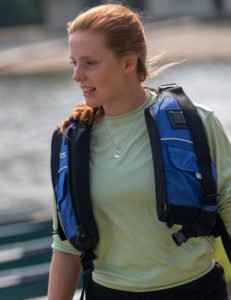
There have been women working in program positions every year since, either in-camp or on the specialist trip crew. In some ways, they are “ancillary staff,” as they can’t practically serve as live-in cabin counselors, as the vast preponderance of our male staff do. But, these days, every Junior cabin has a woman associated with it, someone to be part of the reception team when the boys first arrive, someone to sit at the cabin table in the mess hall, someone to help with inspection clean-up or cook-outs across the lake, someone to be part of the little family that is each cabin. Meanwhile, when they’re out and about teaching and coaching in their various areas of expertise and enthusiasm, they are quietly but unmistakably making the point that anything boys can do, girls can do just as well. Well before Alex Morgan and Megan Rapinoe stepped into the global spotlight to demonstrate their dynamic leadership and stellar play, Pemi boys have been taught and inspired by women in almost every activity we offer. If Pemi still feels Utopian, it’s incontrovertibly a gender-balanced Utopia we’re now talking about.
Prior communications have already introduced the women of 2019’s excellent staff (and half-way through the season, we’re more convinced than ever that this year’s aggregate group is unparalleled in their energy and commitment.) Let’s take a moment to acknowledge, though, that something like half of our program areas are headed by a woman this summer. Wendy Young is a certified athletic trainer at Northfield Mount Hermon School during the winter and serves as Pemi’s overall Head of Program, planning and overseeing the weekly occupations that are at the heart of our educational mission. Last week’s superlative newsletter by Larry Davis echoed our delight that, as Larry steps down as Nature Head after fifty years of service, Deb Kure—now in her 12th Pemi summer—is set to pick up the torch, having already demonstrated her world-class chops as an outdoor educator. Charlotte Jones has rejoined us in the midst of her medical school course for another year as Head of the Waterfront (and celebrated Tecumseh-slayer with her 15-and-under swim team), and is set to receive her 5-year silver bowl. Chloe Jaques heads Sailing for the second summer, having taken over from the accomplished Emily Palmer. Molly Malone, a high school orchestra teacher in Chippewa Falls, WI, has rejoined us for year five as Head of Waterskiing, while Michaela Frank’s long and excellent service has now earned her the position of Head of Music (not to mention her coaching 11’s basketball). Hattie McCloud, back for a third year, is not only heading Canoeing but is also the official Pemi Bugler (and arguably earning the sobriquet “Mother [or is it ‘Sister’?] Time.”) And finally, Deb Pannell, a 5th grade teacher outside of San Francisco, is back for her sixth summer of making Art World one of the most exciting and creative realms your sons could ever venture into.

We thought you might be interested in hearing from this talented and dedicated group of women, so we asked each of them to respond to a few simple questions: “What do you imagine yourself saying about Pemi forty years from now?” And, “Do you think it’s important for women to serve in program positions at camp. Why?” Many of their answers to the first question echo those we have heard from our male staff for years. “I think the philosophy and goal to create an environment where kids can unplug, try new things, and make lifelong friendships is exactly what kids need in today’s society.” Or “Pemi made me realize when people are truly with the people they are physically with (and not preoccupied with cell phones) they really get to know each other.” Or “I’ll talk about the shared transformational experiences, youth and adult alike.” Or “Working at Pemi kick-started my desire to follow a career in teaching.”
Others spoke more directly, as you might expect, to the social challenges inherent for some in any “single sex” institution. “While coming into an all boys camp as a female counselor and program head is one that many people would consider to be daunting (including myself), it has been one of the best experiences in my life. I really enjoy being a role model for the boys. Working with them has been great, and they really respect you.” Or “Working here has equipped me with the skills required to work in male-dominated workplaces, as it allowed me to see this not as a barrier but as an opportunity to harness.” Or “I have grown so much, both in confidence and as a person. I have made so many lifelong friends and been given so many unique opportunities to try new things and become the leader that I am.”
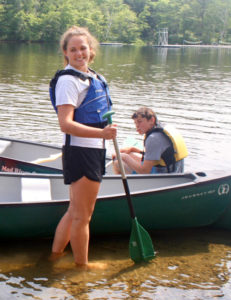
To a one, respondents felt it was crucial for women to fill program positions at Pemi. Multiple people spoke to the importance of what we’ve called the Lower Baker “Utopia” reflecting the gender realities of the world outside the “Pemi bubble.” “A female-less existence is not what campers will encounter in any of their life, so let’s have the best of females to learn with here.” Expanding on the simple notion of the “realistic presence” of women were remarks like this: “I think it’s very helpful to have women on staff in general. I think it is a bonus to have them in leadership positions.” “The boys at Pemi will learn from and look up to both male and female role models in the real world, and it is important we provide that within the camp community.” Two respondents spoke to the need to “normalize” the idea of women in positions of leadership to allow for a fairer and more balanced future. Aside from modeling leadership or expertise, one woman made the simple but compelling point that “Pemi campers learn a great deal from the positive behaviors they observe. Respectful interactions among the women and the men on the Pemi staff serve as valuable examples for young boys.” And, finally, two comments spoke to our taking advantage of some arguably innate differences between men and women. “Diversity in gender has the added benefit of providing diversity of opinion, which allows better decisions to be made.” And then this: “I have heard from the boys who miss home that it is often their moms that they miss. It’s good for them to have ‘camp moms.’” (One wonders if a boy would be as willing to probe this particular aspect of his summer experience if there weren’t a woman around to listen.)
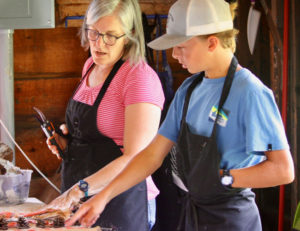
Now, let’s hear from the boys. I didn’t ask them to speak about our subjects as “women in the staff”—just as members of the staff. The group I consulted included: Carter Glahn, Richard Lewis, Anders Morrell, Jake Landry, Jackson Heller, Charlie Broll, Giacomo Turco, Charlie Orben, John Poggi, and Owen Wyman. On Wendy Young: “She does so many things for Pemi”; “Wendy is so hard working. She’s always doing things in the background to make everything work.” On Deb Kure: “Wow! What energy! And all of it always positive”; “She’s so enthusiastic it’s catching”; “A great teacher, really great!” On Charlotte Jones: “C.J. is really nice, always encouraging us to do our best, even if we’re not doing so well”; “She makes hard work fun, but she never makes it too hard.” On Chloe Jaques: “Chloe’s a great teacher, and she’s so kind”; “She’s always willing to help, no matter what she’s doing, even if she’s in the middle of something”; “What a nice person. Great accent, too.” On Molly Malone: “Molly’s a great teacher, too. Always supportive”; “She gives me the best tips, everybody, really”; “Man, is she patient. She’s never negative and, when I make mistakes, she never makes me feel bad about it. She just makes me see how to get better.” On Michaela Frank: “Energetic, funny, welcome, inclusive, that’s what I think she is”; “She always puts others before herself. She’s so encouraging.” Hattie McLeod: “I took canoeing with Hattie, and she’s a super teacher. Very organized but kind”; “She always says ‘Hi’ to me, and she learns everybody’s names”; “Hattie’s really funny for an English person.” And on Deb Pannell: “Deb is really energetic…and she’s so helpful and patient”; “She’s always in Art World, and makes everybody feel good about what they’re doing”; “Deb can be stern, but not too stern. I think she’s great at keeping everybody on task and just expressing themselves.”
Let’s wrap this us by coming back around to the excerpt from “Pemi” with which we began. There’s no question that Pemigewassett has been a very male enclave through the years, but I like to think that, when he wrote one of our signature songs way back when, Dudley Reed was very much aware that, although “sporting…far from Eve’s disturbing daughter” may have had some appeal and utility, it also risked straining some overarching propriety. Why else express that final, “though perhaps he hadn’t oughter” doubt? So, “perhaps” even in our earliest days, the ideological groundwork was being laid for cracking the artificial gender barrier and empowering some bona fide ladies to come in and demonstrate that one man’s “disturbance” can easily become another man’s “productive shake-up.” In any case, even the most stodgy and aged of us are more than willing to allow that, these days, some of our most charismatic and inspirational leaders are women. Long may it be so!

–Tom Reed Jr.
[Stay tuned for next week’s number and Charlie Malcolm’s account of Tecumseh Day, 2019.]



